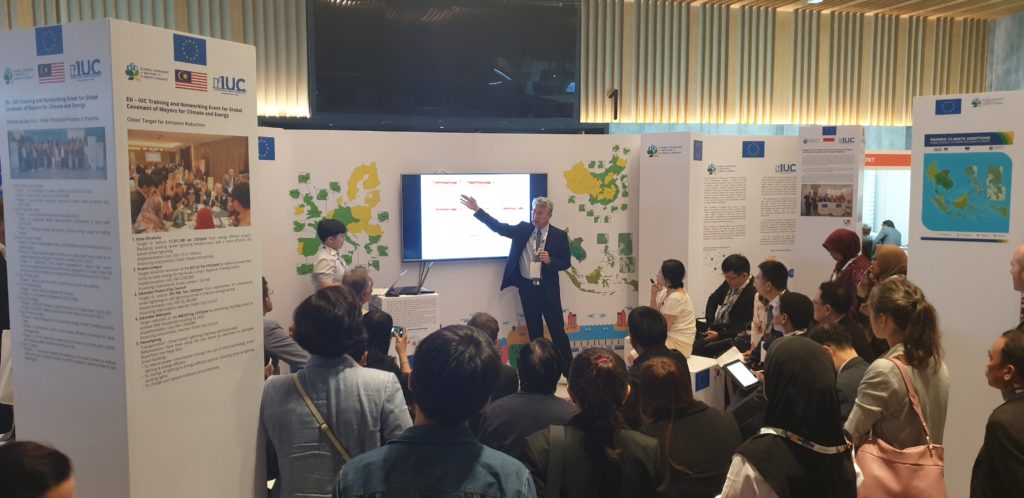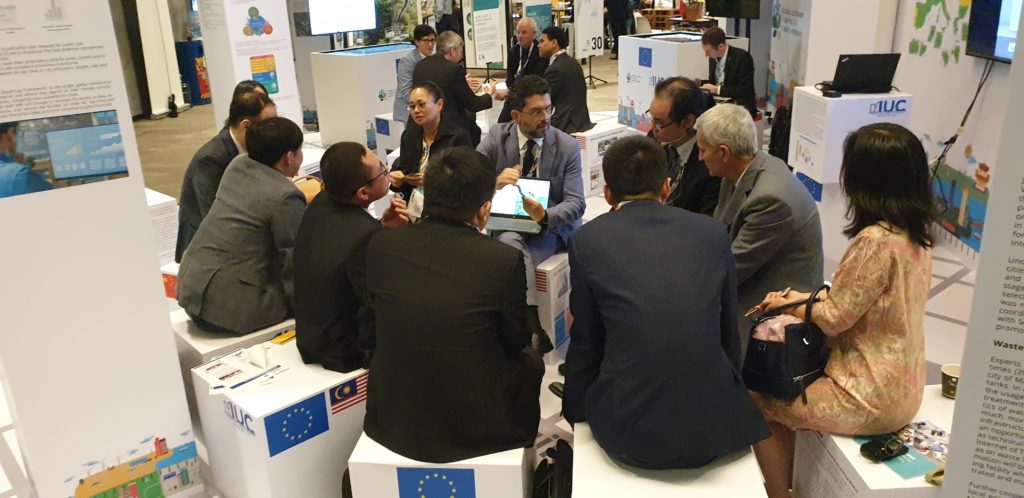Practitioners from China, Korea, Malaysia, Indonesia and Europe gathered during the Asia-Pacific Urban Forum (APUF) to discuss about the development of circular economy solutions in their cities. Rudolf Niessler, Principal Advisor, DG for Regional and Urban Policy, European Commission, introduced the objectives of the session, mainly to focus on ideas and experiences from several IUC Asia cities on circular economy in smart cities. Pablo Gándara, IUC team leader and sustainable urban development expert, referred to the EU and Chinese cities cooperation and explained potential areas and forms of cooperation.
Raul Daussa, cluster manager for circular economy, continued with a presentation on the concept of circular economy and how cities have a great advantage in applying circularity thanks to digitalisation and the critical mass they provide to enable the sharing economy. Examples of European initiatives in shared mobility (blablacar – platform to share car rides) waste minimization (olio – digital platform to share leftover food and avoid waste) and shared ownership (peerby – a Dutch initiative to share low used items among neighbours) were showcased as potential inspiration for ideas (The presentation is attached as annex and as an ppt file).
The expectations of the session were threefold: First, participants were able to listen to examples of how digitalisation is enabling the sharing economy as an integral part of the circular economy. Second, they could share approaches to circularity and explained the main challenges faced in Asian and European cities, and finally, discuss with peers and come up with ideas to be implemented in their respective cities.
Five brief presentations followed: Mr. LAN Ronghou, Deputy Director of DRC Guangxi Province, touched upon the challenges Gunaxi province has faced to minimize agricultural waste. Mr. XI Ran, Chief Officer of DRC Sichuan province shared with the participants the different methods they have in place regarding shared mobility. Mr. Patrick Maurelli, Citera/Sapienza University, Rome, Italy, explained the opportunities to manage Construction Demolition Waste (CDW) and bringing buildings into the Circular Economy. Mr Boyd Dionysius Joeman, Head, Environment, Iskandar Regional Development Authority, explained the concept developed in Iskandar of Industrial Symbiosis and finally Mr. Samuel Seo, Gwangju, Korea explained the opportunities to lower carbon emissions applying circularity principles.
The session continued with two small circle discussions facilitated by the cluster managers for circular economy and smart cities. The 3 driving questions to facilitate dialogue were:
- How can smart city solutions help achieve a circular economy? Examples in your region/city
- What are the main barriers for scaling up circular economy platforms in your region/city? (Privacy, Taxation, Competition, Regulation)
- How can international cooperation help in overcoming those barriers and promote collaboration among different stakeholders?
One small circle focussed on the opportunities that smart cities bring to enable circular economy practices while the other one touched upon practical cooperation between Chinese and European cities on developing biogas technologies to agricultural waste.







